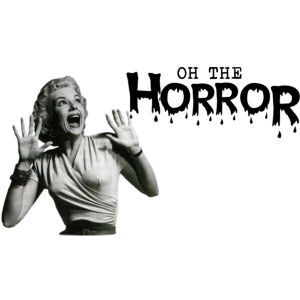The Horror of First Drafts!
I started a new novel. Now let me tell you, it’s been about three years since I stared at a blank page. It’s not that I haven’t been writing these past few years. I’ve been editing a bunch of manuscripts that I wrote during the pandemic. And editing, as most writers know, is a far different skill than writing a first draft. I love the editing process, although don’t ask me that while I’m editing.
But creating something from nothing is different. It’s really, really hard.
As far as first drafts go, Marlon Brando, playing Colonel Kurtz, said it the best in the movie Apocalypse Now: THE HORROR! I’d forgotten how hard it is to write a first draft, even knowing the story of what I was going to write. The sheer terror of venturing into the unknown with unknown characters is a daunting task, and one that I was not entirely ready for. Character after character keeps showing up that I’d never anticipated. More third person close narrators and that scares me. How long will this book be?
Now, I’ve written twelve novels. So why did the terreur, as the French call it, strike me so hard this time? Was it because of the time lapse between books? Was I not as confident in my plot as I thought I would be? I’m not entirely sure why. It just happened. And now I have to deal with. Keep on plugging.
I keep asking myself how I ever wrote twelve novels. And how do authors do this. And yet I keep typing away to the plot’s inevitable, if unknowable, conclusion.
Of course, and there’s always an of course, it gets better with time. And the more you write, the more likely you’ll forget about the terrors and get involved with your plot and your characters lives. How to save these people and make them better. Or worse. You dip your hands in the mud of creation and muck around like a demi-god. Then the terrors start all over again the next day, although they diminish a wee bit with every chapter written.
A secret most writers share is that we forgive ourselves for that first crappy draft. “Father forgive me for I have sinned. My first draft was a complete disaster.” But that’s okay. With experience we accept this outcome and understand it for what it is. Yes, we accept crap because we know, or at least we believe, that even a shitty story filled with holes and inconsistencies can still be salvaged (even if we know that sometimes it can’t be salvaged). Fix it and they will come. And in writing, editing is key. We pray that the editing process will pull this manuscript through.
Whether you’re a panster or plotter, “write on” as Matt Cost likes to say. It’s good advice. The terrors can’t be helped, but an acceptance of the entire writing process helps alleviate them as one writes. The key is to put one’s butt in the chair and write. Write until you can’t write anymore, wiser in the knowledge that vigorous edits will make the novel as good as it can be.
With that said, I’ll quote Matt Cost again and encourage all you authors to WRITE ON if you want to keep those terrors in check.
Lea Wait's Blog
- Lea Wait's profile
- 509 followers



